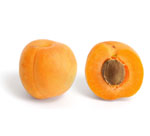Whooping Cough Vaccine Recommendations updated by CDC
Posted by: admin on: November 30, 2011
Whooping cough causes severe morbidity and mortality in infants below the vaccination age group. Hence vaccination of those in contact with infants is recommended. Read on to know this and much more.
Team@CMHF
Pertussis, or whooping cough, is a highly contagious, serious infection causing severe and violent coughing episodes. Although adolescents and adults are most often affected, infants who are too young to be immunized can contract the infection, usually from family members. In this age group, severe morbidity and mortality may result.
We’re finding that 7- to 10-year-olds are underimmunized, and that older adolescents, if immunized at age 11, by the time they get to age 17 or 20, they’re probably not protected. Also, we’re giving the vaccine to mothers during pregnancy, rather than after delivery, because that will protect the mothers, and the mothers will develop the antibodies that they will give to their babies.”
The 2 groups removed their previous minimum interval between administering a tetanus or diphtheria vaccine and the Tdap based on a committee’s review of clinical trials and other studies that cited no excess adverse reaction when Tdap is given shortly after tetanus and diphtheria toxoid vaccine (Td). To help to prevent pertussis, the 2 groups recommend a single dose of Tdap for children aged 7 to 10 years who may have been underimmunized with DTaP or whose immunization history is incomplete. Previously the preferred ages were 11 through 18 years
At this time, the standard schedule for whooping cough vaccines lists shots at ages 2, 4, 6, and 15 to 18 months, as well as at ages 4 to 6 years and 11 to 12 years. Tdap is one of a group of pertussis vaccines used and was the first approved for ages 7 years and older
The groups recommend extending the age for administering Tdap to people aged 65 years and older and to healthcare workers of all ages — anyone who may come in contact with infants too young for vaccination —The groups also recommend vaccination of adolescents, including pregnant adolescents, and pregnant women, whereas previously the recommendation was to wait until after pregnancy.
Study highlights have been enlisted.
Clinical implications of the study:
- According to revised AAP/CDC recommendations for use of Tdap, when Tdap is otherwise indicated, no minimal interval is required or advised between receipt of a tetanus toxoid– or diphtheria toxoid–containing vaccine and Tdap.
- The age for recommendation for Tdap is now extended to those 65 years and older who have or are likely to have contact with an infant younger than 12 months, such as healthcare personnel, grandparents, and other caregivers. Tdap is recommended for adults of any age who have not received Tdap previously, for pregnant women and adolescents, for children 7 through 10 years old who were underimmunized with DTaP, and for adolescents
Search
- drchasrani: Difficult to get such a data, authenticated at that. Try Times of India online library
- rakesh pore: hi, where can i get genuine information about "10 most common drugs sold in india?" i want it for a local project
- nilesh dutta: sir, Plz give detail about MBA Sports Management Thanks and Regards


Leave a Reply